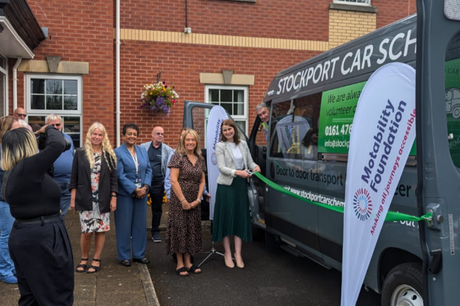As community transport providers, you play a pivotal role in ensuring the accessibility, well-being, and inclusivity of your communities through the transport you provide and none of it can be done without proper funding.
The National Lottery
The National Lottery has a range of funding schemes that CT Providers may be able to apply for. New funds are constantly becoming available. You can see what’s available now here.
A great fund that everyone should apply for is the Awards for All programme. It is very easy to apply for and has minimum eligibility requirements. As of 15th November 2023, the fund is increasing from £10,000 to £20,000. You can find more information here.
Motability
Large providers should consider the Motability Community Transport grant if they provide services that benefit disabled people. Organisations can apply for funds from £100,000 to £4million to improve the impact of community transport for disabled people.
You can apply at any date up until March 2025. To apply your organisation must have an income of over £250,000. If your organisation’s income is lower than £250,000, you might want to consider a consortium bid with some other organisations in your area. Further information can be found here.
Masonic Charitable Foundation
The Masonic Charitable Foundation has two different grant schemes that community transport operators may want to apply for. The “Children and Young People” grant, and the “Later Life” grant. If you support young people or older people, these grants may be great opportunities for you. They offer a small grant of up to £5,000 for charities whose annual income is between, £25,000 – £500,000. For larger charities, whose income is between £500,000 to £5 million, there is a grant of up to £60,000. More information can be found on their website here.
Bus Service Operators Grant (BSOG)
The Bus Service Operators Grant (BSOG) is a discretionary grant given to eligible community transport operators to help them cover some of their fuel costs. The grant amount depends on the fuel used to run eligible services. BSOG aims to:
- Keep running costs down for community transport operators.
- Support the operation of services that might otherwise be financially unviable or cancelled.
You can find out more here.
Energy Resilience Fund
The Energy Resilience Fund (ERF) provides a blended funding package of loan (60%) and grant (40%) to bolster the energy resilience of eligible charities and social enterprises in England.
It is for charities and social enterprises based in and delivering impact in England, who are looking to improve their energy resilience. This could be for many different reasons, for example reduced carbon emissions, energy cost savings, upgrading energy efficiency ratings to meet future regulations, increased use or comfort of buildings, replacing older vehicles and equipment with modern energy efficient versions.
You can find out more here
Other Grant Funding Opportunities
Our development officers are constantly looking for new funds that Community Transport providers can take advantage of. If you’re a CTA member, these development officers are here to help you. Please get in contact at england@ctauk.org for further help.
Section 106 and Community Infrastructure Levy (CIL)
Both the Community Infrastructure Levy (CIL) and Section 106 create funds as the result of a development taking place.
A Section 106 agreement is a legal agreement between a developer and local planning authority that ensures developers do extra work to mitigate the impact of a development on the local community and infrastructure. CT providers, as a form of transport can be part of this mitigation. When you become aware of a new development in your area, you can contact your council and the developer to see if your organisation could be a beneficiary of the 106 agreements.
The Community Infrastructure Levy (CIL) is a tax levied by a local authority on qualifying developments. CILs can be used to fund community infrastructure and arising needs from the new development. Not all local authorities choose to set a levy, and sometimes CILs can be reserved for other social goods such as affordable housing. You can contact your local authorities to find out whether your organisation might be able to access CIL funds.
Sponsorships
Sponsorships from local businesses can be a great way of funding your organisation. You can display sponsorships by having their logos displayed on your bus or website. However, if you are using a section 19, you need to be careful to make sure your sponsors aren’t incidentally profiting from your services.
For example, if your local supermarket sponsored you to run a service that ferried people from their homes to the supermarket, they would be making profit when people spent money in their store. This arrangement would be in violation of your section 19

